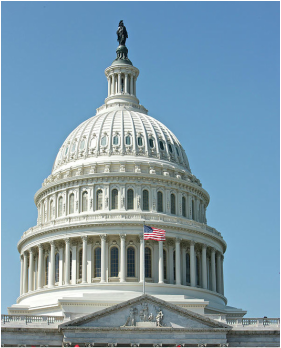Participants in the survey were asked 43 questions. I was one of the survey participants and I always look forward to this exercise as an opportunity to reflect on the institution I have served in the past when I was Historian of the House and one I continue to study here at the Byrd Center. Congress needs to be taken seriously. It is too vital to our nation to take it any other way. I will summarize just a few of the findings and leave you with a link to the full survey, where you can see the full report card for yourself. How does it stack up with your views of Congress? Congress gets C’s and D’s in ability to protect its powers from presidential encroachment, with almost 50% of the respondents giving Congress a D on this point.
The House gets below average grades in allowing the minority to play a role in its deliberations. This is always a bone of contention, especially when the House, more so than the Senate, is controlled by its majority party. The Senate goes better in this category with 64% giving it a B, mainly because the Senate is not often a body that runs by a sheer majority, but rather by the consensus of its members. Not surprising the House is scored hard for its excessive partisanship, with more than 43% giving the House a D, and more than 39% giving it an F. The Senate fares a bit better in excessive partisanship with more than 46% giving it a C, and almost 43% giving the Senate a D in partisanship. How about the people who elect members of Congress? The survey suggests that citizens do contact their representatives and this is a good sign with an above average grade. But the survey participants grade the public down to average to below average when it comes to participation in voting. We are in the midst of a very big election year, where all 435 seats of the House and one-third of the U. S. Senate seats will be decided, not to mention a most unusual and dramatic presidential election in the offing. Please get involved and participate in this incredible, strange, and profound process that we go through to make our democracy work. Comments are closed.
|
Welcome to the Byrd Center Blog! We share content here including research from our archival collections, articles from our director, and information on upcoming events.
Categories
All
Archives
July 2023
|
Our Mission: |
The Byrd Center advances representative democracy by promoting a better understanding of the United States Congress and the Constitution through programs and research that engage citizens.
|
Copyright © Robert C. Byrd Center for Congressional History and Education
|


 RSS Feed
RSS Feed
